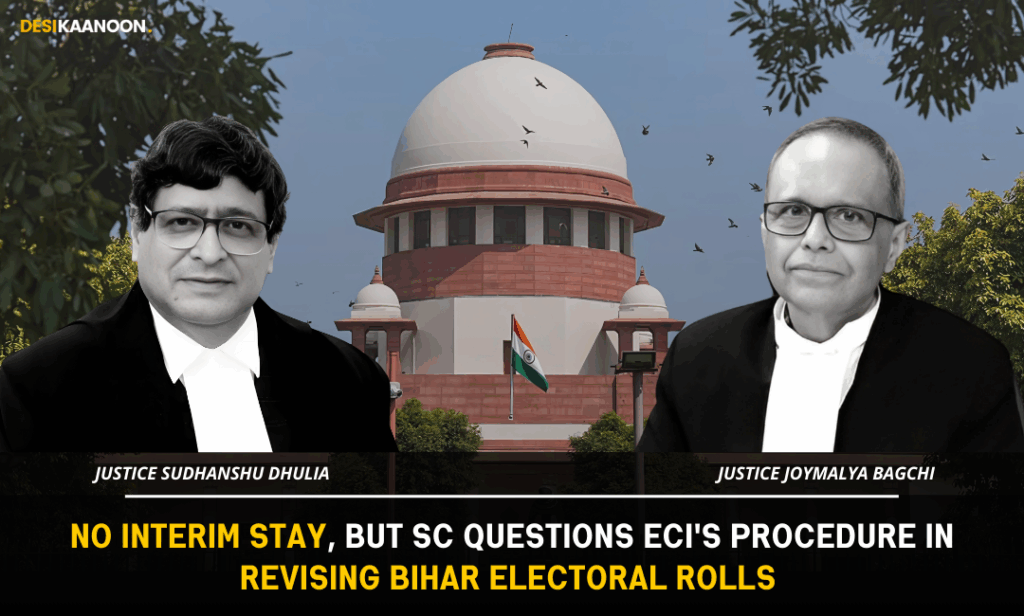Alok Singh
On July 10, 2025, the Supreme Court of India heard several petitions challenging the Special Intensive Revision (SIR) of the electoral rolls. The SIR was ordered by the Election Commission of India (ECI) in Bihar, in anticipation of the upcoming Assembly elections.
Petitioners, including the Association for Democratic Reforms (ADR) and various political leaders, argued that the ECI’s directive issued on June 24, 2025, imposes unreasonable documentation requirements that disproportionately affect marginalised communities. The ECI’s order mandates that voters not listed in the 2003 electoral roll must submit documents proving citizenship, including the documents of both parents for those born after December 2004.
Petitioners argue that this move violates Article 14 (Right to Equality), Article 21 (Right to Life and Personal Liberty), Articles 325 & 326 (Right to Vote) and Provisions of the Representation of the People Act, 1950 and Registration of Electors Rules, 1960. They cautioned that millions of eligible voters in Bihar, where birth registration rates are low, may be left out due to poverty and limited access to necessary documents.
The Bench, comprising Justice Sudhanshu Dhulia and Justice Joymalya Bagchi, refused to stay the revision process, but made important observations like ECI’s list of 11 identity documents is not exhaustive. The Court urged the ECI to also consider Aadhaar, Electoral Photo Identity Card (EPIC), and Ration Card as valid identity proof.
The Court noted that even these commonly held documents were not part of the official list, creating practical difficulties for genuine voters. Further, the Court acknowledged the short timeline, with elections due in November 2025, and questioned the timing of this exercise.
The Court framed three core issues for further consideration, including the Powers of the ECI for such revisions, the Procedural legality of how the revision is being conducted, and the Timing and urgency.
Kapil Sibal argued that the ECI cannot determine citizenship, and the burden of proof lies on the State, not the voter. Abhishek Manu Singhvi warned of mass disenfranchisement, calling the exercise “a sham”. Gopal Sankaranarayanan called the 2003 cut-off arbitrary and discriminatory.
However, ECI (via Rakesh Dwivedi & Maninder Singh) justified the exercise under Section 21(3) of the RPA, 1950 and said it was last done in 2003; Aadhaar not admissible due to restrictions under the Aadhaar Act.
The Court declined to pass an interim stay but kept the option open depending on the ECI’s response. But, the Court has issued notice to the ECI and asked for a counter-affidavit by 21 July 2025, and the next hearing is scheduled for 28 July 2025.
Case Title: Association for Democratic Reforms & Ors. v. Election Commission of India
Case Number: Writ Petition (Civil) No. 640 of 2025
Bench: Justice Sudhanshu Dhulia and Justice Joymalya Bagchi
Click here to access the order.
Instagram: Click here
LinkedIn: Click here
For Collaboration and Business: info.desikaanoon@gmail.com

